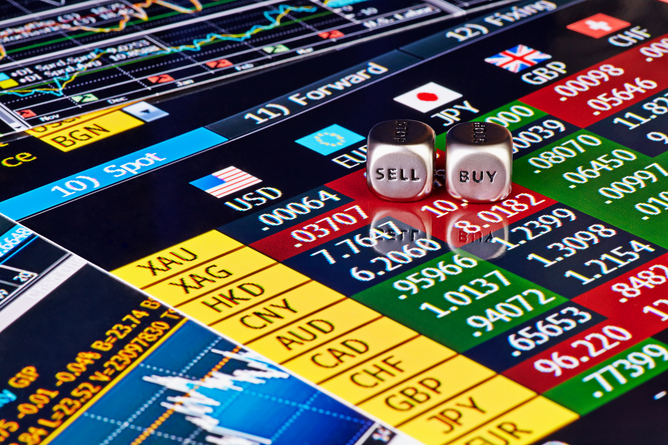 Forex trading is becoming increasingly popular around the world. More and more people register at a forex broker and try to trade. But it’s more like testing their luck when they start trading because most new traders actually gamble and don’t trade seriously. They open positions due to emotions or feelings lucky and hope that the trade will go in their favor. Obviously forex trading leaves no room for emotions and feelings like that. And there’s no doubt that everybody who trades according to feelings will go broke sooner or later.
Forex trading is becoming increasingly popular around the world. More and more people register at a forex broker and try to trade. But it’s more like testing their luck when they start trading because most new traders actually gamble and don’t trade seriously. They open positions due to emotions or feelings lucky and hope that the trade will go in their favor. Obviously forex trading leaves no room for emotions and feelings like that. And there’s no doubt that everybody who trades according to feelings will go broke sooner or later.
The forex market is open 24/5 and the ups and downs of the market can change at the drop of a dime, leading to significant fluctuations in the earnings and losses of the trader. There is no start and stop time to regulate the workday for traders, which creates a temptation for constant monitoring and review. The trader can develop an addiction to watching the market, sometimes letting other responsibilities and duties fall by the wayside. This manifests itself in reduced time with family and no accommodation for down time or relaxation, much like a gambler.
Gambling addicts always believe that the next bet will be the winning bet. This false sense of optimism keeps them pouring money into their chosen method of gambling, even when they cannot afford to do so. An addicted trader works in a similar matter. It is true that every trade is an opportunity to make money, but it is an opportunity to lose money as well. The behavior may be reinforced by a long streak of substantial gains, but a good trader should always work from the perspective of possible loss when making a trade.
Once someone is involved in the financial markets there is a learning curve, which based on lot of social proofing discussions seem like it is gambling. This may or may not be true based on the individual. How the person approaches the market will determine whether she/he becomes a successful trader or remains a perpetual gambler in the financial markets. Whatever path you choose to take, you will see a difference if you treat trading as a business and not gambling.
It is true that on a very short-term basis, there is an element of randomness in the markets, but if you take a look at the longer-term charts and analyze the markets to make trading decisions, you can place the odds of winning firmly in your favor. Therefore, to answer the original question I would say that forex trading is definitely not another form of gambling because with a bit of education you can become an accomplished trading analyst and determine high probability of trading positions where you can earn far more than can you lose.







